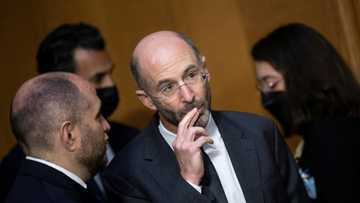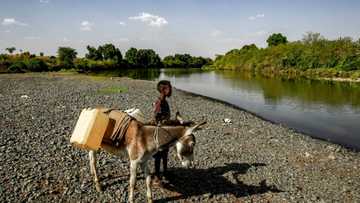China accuses New Zealand of 'misguided' accusations

Source: AFP
China accused New Zealand Prime Minister Jacinda Ardern on Friday of making "wrong and thus regrettable" statements that were unhelpful for keeping the two countries' relationship "on the right track".
Ardern attended the NATO leaders' summit in Spain this week, saying in a speech Wednesday that China had become "more assertive and more willing to challenge international rules and norms".
The Chinese embassy in Wellington hit back Friday that it had taken note of Ardern's "misguided" accusations.
"That allegation is wrong and thus regrettable," the embassy said in a statement posted on its website.
"It is obvious that such comment is not helpful for deepening mutual trust between the two countries, or for the efforts made by the two countries to keep our bilateral relations on the right track."
It is the second time in a month that China has taken issue with comments by Ardern.
PAY ATTENTION: Share your outstanding story with our editors! Please reach us through info@corp.legit.ng!
In early June, the New Zealand leader and US President Joe Biden issued a joint statement expressing concern over the possibility of China establishing "a persistent military presence in the Pacific".
Chinese foreign ministry spokesman Zhao Lijian accused the two leaders at the time of trying to "deliberately hype up" China's internal issues and said their statement "distorts and smears China's normal co-operation with Pacific Island countries".
China is New Zealand's biggest trading partner and Wellington has previously sought not to antagonise Beijing.
Last year, it distanced itself from statements by its "Five-Eyes" intelligence partners -- the United States, Britain, Australia and Canada -- condemning Beijing's crackdown on the democracy movement in Hong Kong and its treatment of its Uyghur Muslim population.
But in her address at the NATO summit, Ardern said that while Europe faced tensions caused by Russia's invasion of Ukraine, the Pacific was also experiencing "mounting pressure on the international rules-based order."
Concerns were heightened in April when China signed a security pact with Solomon Islands, raising fears it could open the door to a Chinese military presence in the South Pacific.
The Chinese embassy maintained its goal in the South Pacific was to help island states develop and said Beijing "opposes attempts by a small number of countries to impose their own will and so-called values on others under the guise of multilateralism".
Source: AFP




